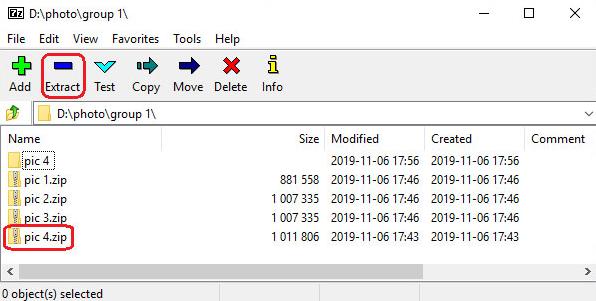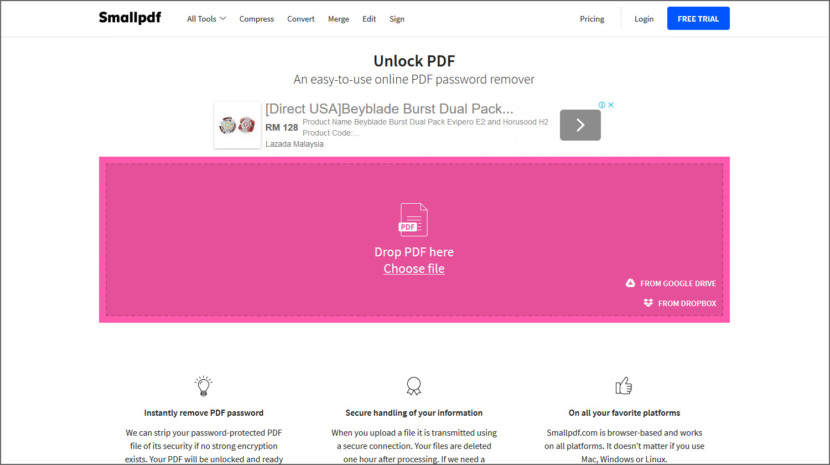As a technical blogger, I must say that using a password manager is a very recommended and convenient way of keeping your online login credentials secure and organized. However, it’s natural to wonder what would happen if a password manager gets hacked. In the unfortunate event that this happens, hackers could potentially access all your login credentials and sensitive information.
In such a scenario, the first thing you should do is to inform your password manager provider immediately. They will provide you with guidance on what steps to take next, including changing your master password, revoking access to all devices, and updating all the credentials that were stored in the password manager.
If you have reused any passwords for multiple accounts, it’s essential to change them as well. Furthermore, delaying in informing the password manager providers could lead to more damage.
To avoid these sensitive situations, as a security expert, I recommend using strong and unique passwords for all your accounts. Don’t allow your browser to save passwords as they are subject to theft and misuse too. Finally, make sure to keep your password manager up to date with any security patches and improving your own access controls, like using two-factor authentication to protect your master password.
Are password managers easily hacked?
Are password managers Unhackable?
The short answer is no, no digital system or software can be considered completely unhackable. However, password managers are designed to be highly secure and provide an additional layer of security to protect your sensitive information.
Password managers use a combination of encryption techniques and other security protocols to keep your login credentials and other sensitive information safe. They are designed to protect against common hacking techniques such as brute force attacks and data breaches. Additionally, reputable password managers constantly update their software to address any vulnerabilities that may be discovered.
That being said, there are still potential weaknesses that could make a password manager vulnerable to attack. For example, if a hacker gains access to the master password of your password manager, they would be able to access all of your stored information. There is also the risk of keyloggers or other malware that could be used to capture your password as you enter it into your manager.
In summary, password managers can provide a high degree of security and are an excellent tool for managing your login credentials. However, it is important to remember that no system is completely unhackable and there is always a risk of compromise. Therefore, it is essential to use additional security measures, such as two-factor authentication and regular software updates, to further protect your online accounts.
Is using a password manager secure?
Using a password manager is generally considered a secure method of storing passwords. Password managers are designed to generate and store complex passwords for different accounts, alleviating the burden of having to remember multiple passwords. The most reputable password managers use encryption to ensure that user data is protected even in the event of a breach.
Instead of having to remember passwords, passwords managers allow users to generate a unique and complex password for each account. Users only need to remember their password manager’s master password to access their account data. This means that users don’t have the risk of reusing the same password on multiple accounts, which is a common security vulnerability.
While there is no certainty about perfect security, password managers represent a lower-risk method of secure password management than storing passwords directly in browsers or in plaintext documents. Therefore, it’s important for users to choose a reputable password manager and use updated antivirus software to keep their data safe.
Has LastPass ever been hacked?
Yes, LastPass has experienced security breaches in the past. In 2015, LastPass detected unauthorized access to its user data, including email addresses, password reminders, and authentication hashes. The company stated that no encrypted user vault data was taken. However, in 2016, LastPass had to fix a vulnerability that could allow attackers to execute malicious code and steal passwords.
LastPass has taken various measures to improve its security measures and prevent future attacks, such as implementing two-factor authentication and using encryption to protect user data. It is important to regularly check for updates and use strong and unique passwords to ensure the security of your online accounts.
Which password manager has never been hacked?
As far as the public information is concerned, there is no password manager that has never been hacked. Unfortunately, no software or system is 100% secure from hacking attempts. However, top password managers employ advanced encryption and security protocols to make it extremely difficult for hackers to get access to users’ sensitive information.
It’s worth noting that password managers make it easier for users to use unique and complex passwords for each online account. This significantly reduces the risks of a single breach leading to compromises in multiple accounts.
While no password management system can guarantee that it will never be hacked, the key is to select a reputable provider with a good track record and employ best practices when using the system, such as using two-factor authentication, enabling automatic security updates, and regularly changing master passwords. Additionally, as a user, it is recommended that you remain vigilant about suspicious activity and keep an eye on your accounts for any unauthorized access.
Can hackers see your password?
As a technical blogger, I can confirm that it is possible for hackers to see your password. There are several methods that a hacker can use to gain access to your password, such as phishing attacks, keylogging, and brute force attacks.
Phishing is a method where hackers create fake login pages and send them through emails, messaging apps or social media. When someone enters their password on the fake login page, the hacker is able to receive the password. Keylogging is another method, where hackers install software on your device to track all the keystrokes that you make, including your passwords.
Brute force attacks are yet another method that hackers use. In this method, hackers use automated tools to try every possible combination of characters until they find the correct password that gives them access to the account.
To prevent hackers from seeing your password, it is important to use strong passwords that are difficult to guess or brute force. Password managers can be helpful in generating and securely storing these passwords. Additionally, enabling two-factor authentication can add extra security layers that make it harder for hackers to gain access to your accounts, even if they know your password.
{“@context”:”https://schema.org”,”@type”:”FAQPage”,”mainEntity”:[{“@type”:”Question”,”name”:”Are password managers Unhackable?”,”acceptedAnswer”:{“@type”:”Answer”,”text”:”The short answer is no, no digital system or software can be considered completely unhackable. However, password managers are designed to be highly secure and provide an additional layer of security to protect your sensitive information. nnPassword managers use a combination of encryption techniques and other security protocols to keep your login credentials and other sensitive information safe. They are designed to protect against common hacking techniques such as brute force attacks and data breaches. Additionally, reputable password managers constantly update their software to address any vulnerabilities that may be discovered. nnThat being said, there are still potential weaknesses that could make a password manager vulnerable to attack. For example, if a hacker gains access to the master password of your password manager, they would be able to access all of your stored information. There is also the risk of keyloggers or other malware that could be used to capture your password as you enter it into your manager. nnIn summary, password managers can provide a high degree of security and are an excellent tool for managing your login credentials. However, it is important to remember that no system is completely unhackable and there is always a risk of compromise. Therefore, it is essential to use additional security measures, such as two-factor authentication and regular software updates, to further protect your online accounts.”}},{“@type”:”Question”,”name”:”Is using a password manager secure?”,”acceptedAnswer”:{“@type”:”Answer”,”text”:”Using a password manager is generally considered a secure method of storing passwords. Password managers are designed to generate and store complex passwords for different accounts, alleviating the burden of having to remember multiple passwords. The most reputable password managers use encryption to ensure that user data is protected even in the event of a breach. nnInstead of having to remember passwords, passwords managers allow users to generate a unique and complex password for each account. Users only need to remember their password manager’s master password to access their account data. This means that users don’t have the risk of reusing the same password on multiple accounts, which is a common security vulnerability. nnWhile there is no certainty about perfect security, password managers represent a lower-risk method of secure password management than storing passwords directly in browsers or in plaintext documents. Therefore, it’s important for users to choose a reputable password manager and use updated antivirus software to keep their data safe.”}},{“@type”:”Question”,”name”:”Has LastPass ever been hacked?”,”acceptedAnswer”:{“@type”:”Answer”,”text”:”Yes, LastPass has experienced security breaches in the past. In 2015, LastPass detected unauthorized access to its user data, including email addresses, password reminders, and authentication hashes. The company stated that no encrypted user vault data was taken. However, in 2016, LastPass had to fix a vulnerability that could allow attackers to execute malicious code and steal passwords. nnLastPass has taken various measures to improve its security measures and prevent future attacks, such as implementing two-factor authentication and using encryption to protect user data. It is important to regularly check for updates and use strong and unique passwords to ensure the security of your online accounts.”}},{“@type”:”Question”,”name”:”Which password manager has never been hacked?”,”acceptedAnswer”:{“@type”:”Answer”,”text”:”As far as the public information is concerned, there is no password manager that has never been hacked. Unfortunately, no software or system is 100% secure from hacking attempts. However, top password managers employ advanced encryption and security protocols to make it extremely difficult for hackers to get access to users’ sensitive information.nnIt’s worth noting that password managers make it easier for users to use unique and complex passwords for each online account. This significantly reduces the risks of a single breach leading to compromises in multiple accounts. nnWhile no password management system can guarantee that it will never be hacked, the key is to select a reputable provider with a good track record and employ best practices when using the system, such as using two-factor authentication, enabling automatic security updates, and regularly changing master passwords. Additionally, as a user, it is recommended that you remain vigilant about suspicious activity and keep an eye on your accounts for any unauthorized access.”}},{“@type”:”Question”,”name”:”Can hackers see your password?”,”acceptedAnswer”:{“@type”:”Answer”,”text”:”As a technical blogger, I can confirm that it is possible for hackers to see your password. There are several methods that a hacker can use to gain access to your password, such as phishing attacks, keylogging, and brute force attacks.nnPhishing is a method where hackers create fake login pages and send them through emails, messaging apps or social media. When someone enters their password on the fake login page, the hacker is able to receive the password. Keylogging is another method, where hackers install software on your device to track all the keystrokes that you make, including your passwords.nnBrute force attacks are yet another method that hackers use. In this method, hackers use automated tools to try every possible combination of characters until they find the correct password that gives them access to the account.nnTo prevent hackers from seeing your password, it is important to use strong passwords that are difficult to guess or brute force. Password managers can be helpful in generating and securely storing these passwords. Additionally, enabling two-factor authentication can add extra security layers that make it harder for hackers to gain access to your accounts, even if they know your password.”}}]}





